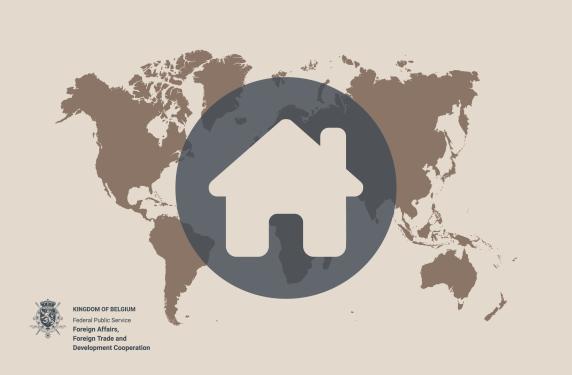-
Last updated on
All information on legalisation of documents is available on the website of the FPS Foreign Affairs.
As of 1/06/19 all legalisations will be introduced through TLScontact. It is therefore not necessary to come to the embassy to have any documents legalised. For all useful information concerning legalisation please follow the information on the TLScontact website
Starting from November 2020, the legalizations will be done on a A4 document (no legalization sticker any more) with a QR code as the documents have been digitalized in a central system.
The legalised and signed documents can be find by the QR code on the LegalWeb website
All information on legalisation of documents is available on the website of the FPS Foreign Affairs. In case of problems with their legalisations applicants can always contact the Embassy by e-mail cairo.consular@diplobel.fed.be
Documents issued by the Egyptian/Sudanese government must be
- be translated by a sworn translator in French, Dutch or German;
- be legalised by the Ministry of Foreign Affairs in Egypt/Sudan;
- have not been issued more than 6 months ago.
Documents legalised by the Embassy can be submitted directly to the competent authority in Belgium and no longer need to be legalised by the Belgian Ministry of Foreign Affairs.
A document that is official and legal in one country is not necessarily official and legal in another. Many documents must therefore be legalised if you wish to use them abroad.
The legalisation process involves checking the origin of the relevant document. Legalisation is official confirmation that the signature of the civil servant that has signed a document, or the seal or stamp on the document, is legitimate.
It is not only the signature of the person that has issued the document that is legalised, the process can also legalise the signature of the legalising registrar. Every signature, every seal and every stamp will be legalised by the person authorised to do so and who is familiar with each signature, seal or stamp. This explains why various legalisations are sometimes required, in a specific order.
A country may have signed up to a legalisation treaty that encompasses agreements about how countries accept one another's official documents. Many countries have signed up to the "Apostille Convention" of The Hague of 5 October 1961. With this, just 1 legalisation is required via an apostille stamp.
